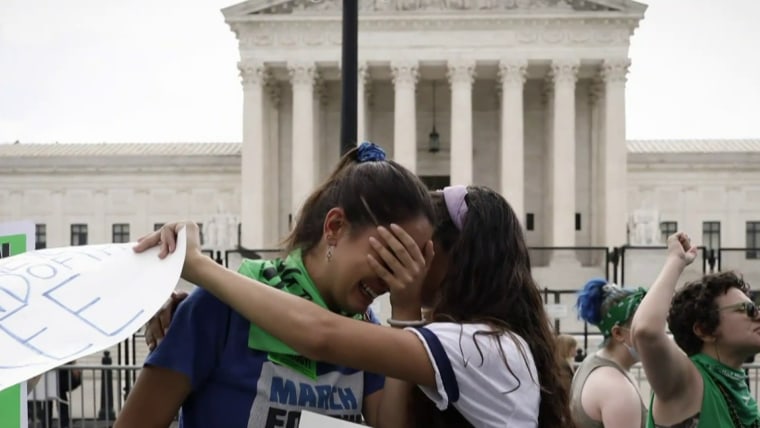There's another War Between the States coming over abortion

The Supreme Court’s abortion decision is likely to set off a wave of legal and political disputes among states and the federal government unlike anything seen since the years before the Civil War, legal experts say.
With some states allowing private lawsuits against out-of-state abortion providers — and other states prohibiting cooperation with abortion investigations — the abortion issue is likely to pit state law enforcement agencies and court systems against one another in dramatic fashion. The federal government, meanwhile, faces a choice over how to deal with states that seek to ban Food and Drug Administration-approved abortion medication, now used in about half of pregnancy terminations. And whatever the Biden administration does, federal policy could change dramatically if the Republicans take the White House.
Experts say it is conceivable that a person could be wanted for a felony in an anti-abortion rights state but protected from extradition in a pro-abortion rights state. The governor of Massachusetts has already imposed rules forbidding state officers from cooperating in abortion investigations. California’s governor signed a bill seeking to protect from civil liability anyone providing, aiding or receiving abortion care in the state. Texas law, however, lets private citizens sue out-of-state abortion providers, and Missouri is considering a similar law.
“What we had in the years leading up to the Civil War was a failure of what lawyers call comity, the idea that states will respect other states’ laws” for reasons of courtesy, consideration and mutual respect, said Ariela J. Gross, a professor of law and history at the University of Southern California Gould School of Law. “That starts to break down when you have these really stark differences over an issue involving a fundamental right, and that’s what happened in the years leading up to the Civil War.”
After the passage of the Fugitive Slave Act of 1850, federal statutes required Northern states to assist Southern slave owners and their bounty hunters in capturing enslaved people who had escaped north to states that had banned slavery. But many Northern states passed laws to impede cooperation and enforcement.
The parallel to abortion is that “you literally are pursuing people across state borders for seeking medical care that is legal,” said Sara Rosenbaum, a professor of health law and policy at the George Washington University School of Public Health and Health Services. “It’s a completely mind-blowing concept.”
Legal disputes between the states are not uncommon, even over big social issues. An example is cannabis — legal right now in some states, illegal in others. But no other recent issue of dispute among the states comes close in terms of its implications — and the passion on both sides of the argument — as abortion.
“It’s one thing to have states fighting with each other about a tax on interstate cargo or mudflaps on trucks,” said Wendy Parmet, a professor of law and public policy at the Northeastern University School of Public Policy and Urban Affairs. “It’s not the kind of thing that tens of thousands of people take to the streets over. … We certainly have not seen since the Civil War these kinds of conflicts between the states in a context of such heightened controversy and anger.”
Many pro-abortion rights states moved quickly after the Supreme Court decision.
Massachusetts Gov. Charlie Baker, a moderate Republican, signed an executive order Friday that prohibits any executive agency from assisting another state’s investigation into a person or entity for receiving or delivering reproductive health services that are legal in Massachusetts.
The order also seeks to protect Massachusetts providers who deliver abortion services from losing their professional licenses or receiving other professional discipline stemming from out-of-state charges.
end quote from:
https://www.nbcnews.com/politics/supreme-court/another-war-states-coming-abortion-rcna35566

No comments:
Post a Comment